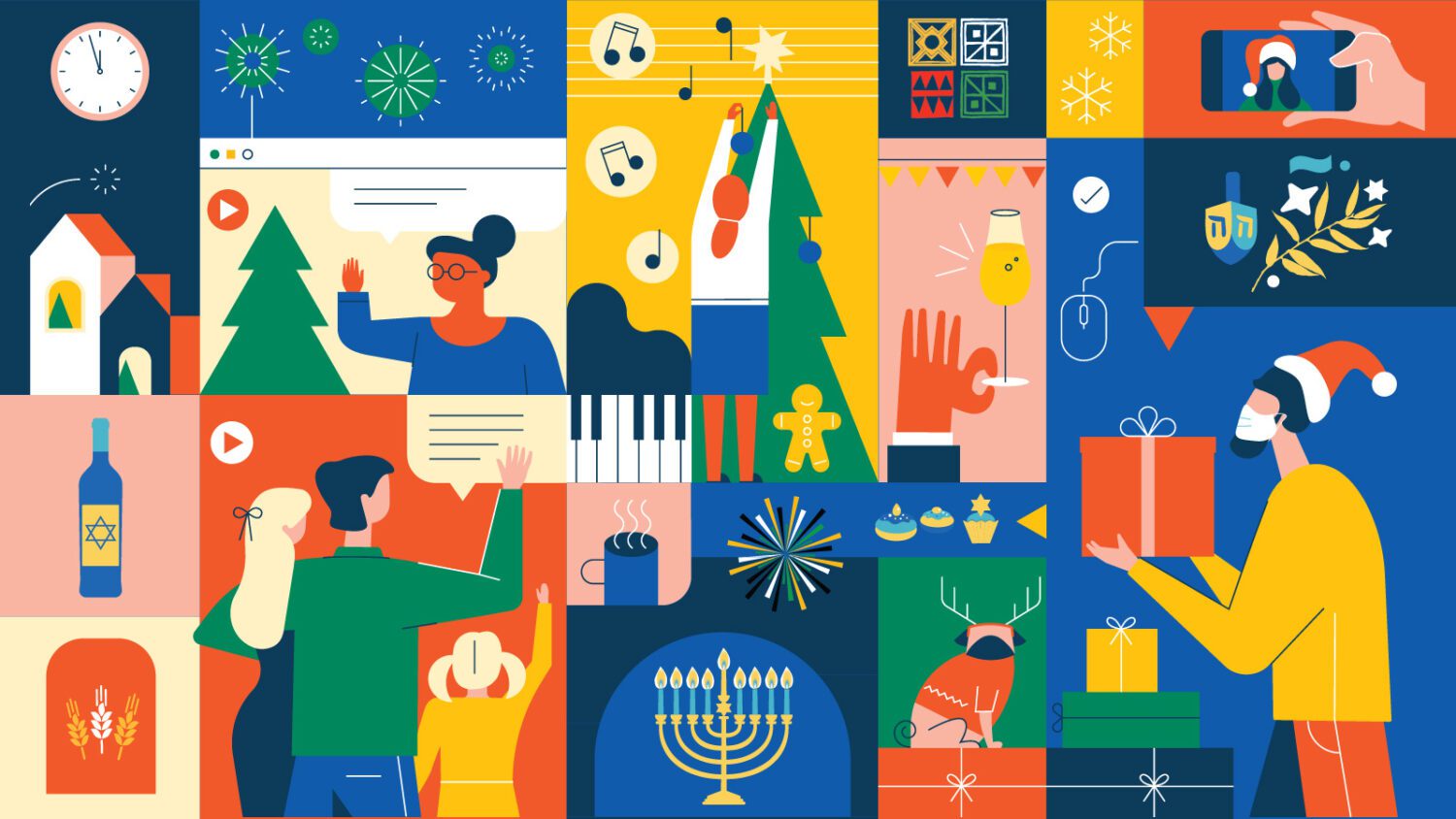With the holiday season in full swing, the risks posed by the COVID-19 pandemic are still very real, especially given the arrival of the virus’ Omicron variant. However, there are simple ways to make sure that loved ones, especially older adults, have safe, healthy and happy holiday celebrations, say experts from the USC Leonard Davis School of Gerontology.
Don’t invite COVID to the party
First and foremost: all eligible individuals should protect themselves and others by getting vaccinated against both COVID-19 and influenza, says Edward Schneider, professor and dean emeritus at the USC Leonard Davis School. Either illness could become serious, especially for older loved ones, so preventing the spread via vaccination, maintaining good hygiene and distancing, and staying home when sick are important.
“Get your COVID and flu shots,” Schneider says. “But, even if you have had several vaccinations, COVID is still dangerous. You can have a breakthrough infection. So, stay away from being indoors with crowds of people.”
Research Associate Professor Donna Benton, director of the USC Family Caregiver Support Center, acknowledges that more people will likely hold holiday gatherings this season compared to last year. A few additions and adjustments to holiday events can improve safety while still allowing loved ones to gather and celebrate.
“Unlike last year, families can come together, but we can’t throw caution to the wind,” Benton says. “Younger children and some relatives may not be vaccinated, so it is still important to have a festive ‘visitor center’ with masks, hand sanitizer and some nice smelling lotions to reduce the risk of COVID-19 transmission.”
Avoiding dense crowds indoors is an important way to reduce the spread of illness, so take advantage of mild weather with outdoor gatherings if possible, or spread the cheer out with small gatherings instead of large parties, she adds.
“If the weather is good, make it an outdoor event,” Benton recommends. “If it’s indoors, have a rolling visitation schedule to reduce the number of people in your house at once. We want to keep our older relatives safe and healthy, so don’t ignore COVID-19 precautions.”
Make time for safety
Along with reducing the spread of illness, it’s important to take time to avoid injuries during the busy holiday season, says Professor Jon Pynoos, director of the USC Fall Prevention Center of Excellence. Between decorating, shopping, cooking and other activities, everyone should regularly take a moment to address hazards that could lead to a fall.
“When indoors, there are simple actions that you can take to reduce the risk of falls: remove clutter and trip hazards from the floor, ensure lighting is adequate, and keep frequently used items in easy to reach places to avoid climbing up or bending down,” Pynoos advises.
Wintry weather and fewer hours of daylight mean that outdoor activities also require the same preparation and awareness, he adds.
“When outdoors, watch out for uneven sidewalks and trip hazards in your path,” Pynoos says. “Dress for success: wear shoes with firm soles and low heels, avoid bifocals or reading glasses that make it harder to see hazards on the ground, and on bright days, wear sunglasses to reduce glare. At night, walk where there is plenty of light or carry a small flashlight.”
During one of the busiest parts of the year, spending a little time to slow down and be mindful of surroundings can prevent injury and make for a safer season. “Whether outdoors or in, always take your time; hurrying across a room or street puts you at risk of falling,” Pynoos says.
Embrace traditions in an evolving world
As COVID-19 has necessitated changes to our lives, finding new ways to embrace old traditions – including favorite holiday foods – can help people feel more resilient and comforted, says Cary Kreutzer, associate professor of clinical gerontology and pediatrics and director of the USC Leonard Davis Master of Science in Nutrition, Healthspan and Longevity program. Whether teaching a beloved recipe via a video call, hosting a holiday dinner on the patio, or cooking together with a small group of loved ones, keeping traditions going even in the face of changing risks can help keep the season bright.
“While the world changes around us, not always in the best ways, we as humans are resilient, and through our holiday rituals and routines we can look beyond the changing world,” Kreutzer says. “Helping our loved ones to embrace our favorite foods, mealtime rituals and family traditions helps to promote our resilience and put aside for a bit the changing world. So prepare the baklava, assemble the tamales, roll the meatballs, make those special holiday treats and enjoy the moment, enjoy the day.”

Professor and Dean Emeritus Edward Schneider

Research Associate Professor Donna Benton, director of the USC Family Caregiver Support Center

Professor Jon Pynoos, director of the Fall Prevention Center of Excellence

Associate Professor Carin Kreutzer, MSNHL Program Director





